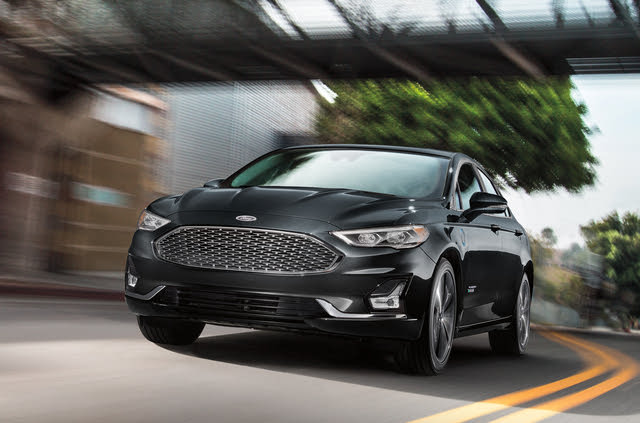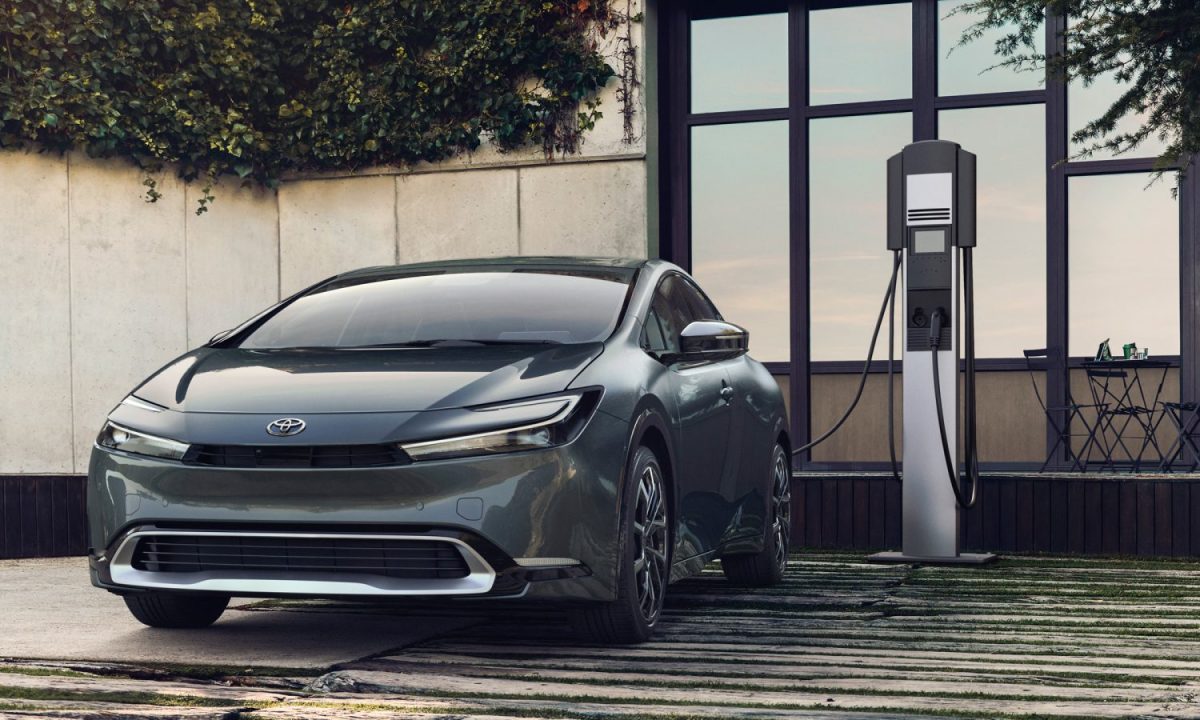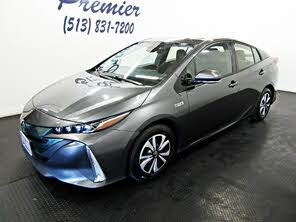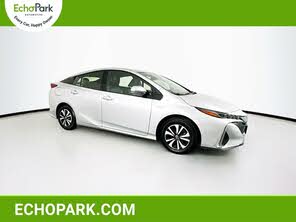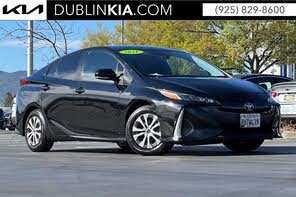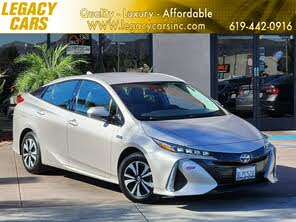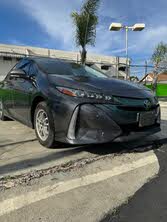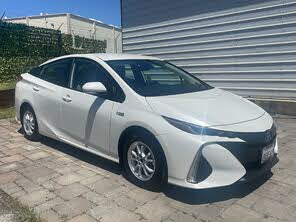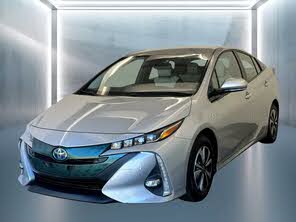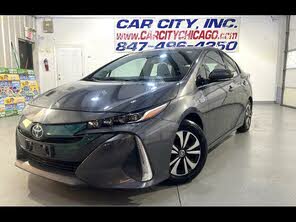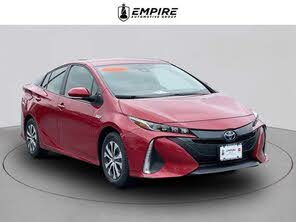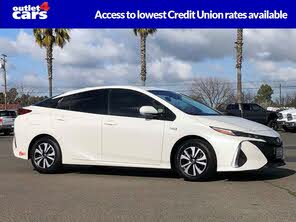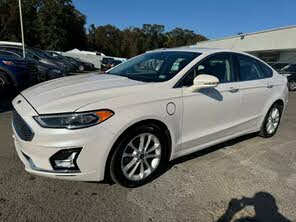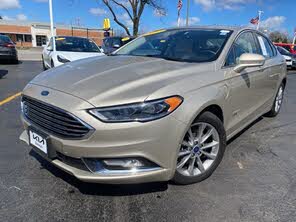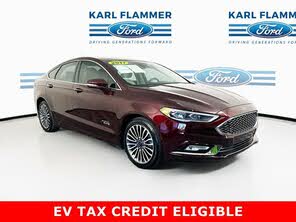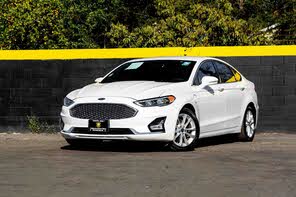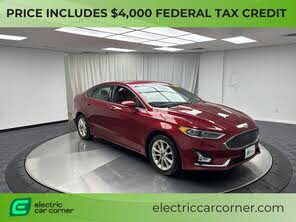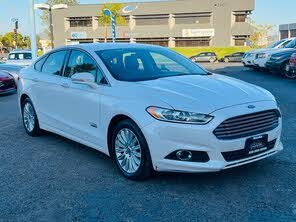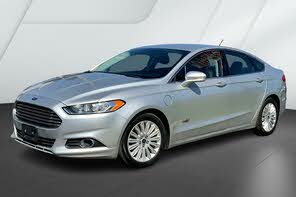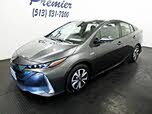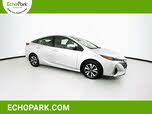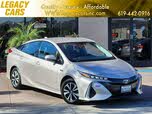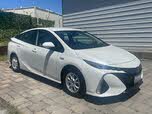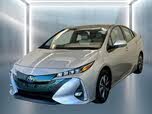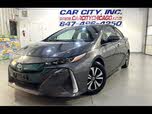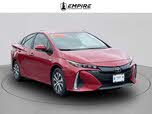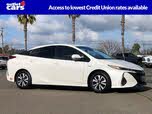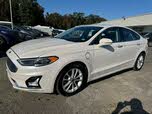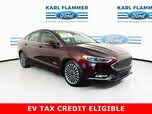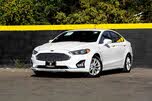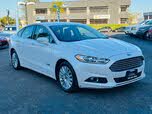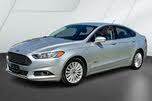Ford Fusion Energi vs Toyota Prius Prime
2021 Toyota Prius Prime for Sale
Shop Now1533 results
2019 Ford Fusion Energi for Sale
Shop Now426 results
Overview | |
MSRP$35,620 | MSRP$28,220 |
Average price$16,249 | Average price$25,000 |
Listings429 | Listings1562 |
Ratings & Reviews | |
User Reviews | User Reviews |
Expert reviews6.2 out of 10 | Expert reviews6.5 out of 10 |
Pros
| |
Reviews SummaryThe Fusion may be going away for good, but before it takes its final bow, Ford is doing its best to keep it relevant. This year, the plug-in hybrid version—the Energi—receives increased battery capacity (from 7.6 kWh to 9.0 kWh), thanks to more energy-dense chemistry. In turn, this increases the stated electric range from 21 to 25 miles, putting it right in line with the best-selling plug-in hybrid on the market, the Prius Prime. Additionally, a mild facelift has updated the front and rear, but the real winner for 2019 is Ford’s Co-Pilot360 suite of driver-assistance tech. This addition adds blind-spot monitoring, lane-keeping assist, automatic emergency braking with pedestrian detection, automatic high-beams, and a reversing camera. The Fusion is the first vehicle to get this new package, and in one of the smartest moves Ford has made of late, it comes standard across the range. | |
Reviews SummaryWith the 2021 Prius Prime, Toyota does what Toyota does best—packaging. The car comes with a good list of standard equipment and features while maintaining the range and efficiency qualities that plug-in hybrid shoppers are looking for. But a hard-to-use infotainment system and slow acceleration eat into the ownership experience as the market gets increasingly more competitive. | |
Popular Features & Specs | |
Engine2.0L 188 hp I4 Hybrid | Engine1.8L 121 hp I4 Hybrid |
Drive TrainFWD | Drive TrainFWD |
Seating Capacity5 | Seating Capacity5 |
EV Battery Capacity7.6 kWh | EV Battery Capacity8.8 kWh |
MPG City109 | MPG City55 |
MPG Highway97 | MPG Highway53 |
Battery Charge Time (120V) | Battery Charge Time (120V)5.5 hours |
Battery Charge Time (240V)2.5 hours | Battery Charge Time (240V)2 hours |
Engine | |
Engine Name2.0L 188 hp I4 Hybrid | Engine Name1.8L 121 hp I4 Hybrid |
Battery Charge Time (120V) | Battery Charge Time (120V)5.5 hours |
Battery Charge Time (240V)2.5 hours | Battery Charge Time (240V)2 hours |
DrivetrainFWD | DrivetrainFWD |
Fuel Economy | |
EV Battery Capacity7.6 kWh | EV Battery Capacity8.8 kWh |
MPG City109 | MPG City55 |
MPG Highway97 | MPG Highway53 |
Interior | |
Seating Capacity5 | Seating Capacity5 |
Safety | |
Front Crash Overall | Front Crash Overall4 |
Side Crash Overall | Side Crash Overall5 |
Dimensions & Capacity | |
Cargo Space8.2 cu ft | Cargo Space19.8 cu ft |
Curb Weight | Curb Weight3365 lbs |
Height58.0 in | Height57.9 in |
Length191.8 in | Length182.9 in |
Width75.2 in | Width69.3 in |
Wheelbase112.2 in | Wheelbase106.3 in |
Maximum Payload | Maximum Payload840 lbs |
Number of doors4 | Number of doors4 |
2021 Toyota Prius Prime for Sale
Shop Now1533 results
2019 Ford Fusion Energi for Sale
Shop Now426 results
Overview | ||
MSRP | $35,620 | $28,220 |
Average price | $16,249 | $25,000 |
Listings | ||
Ratings & Reviews | ||
User reviews | 4.7 | 4.6 |
Expert reviews | 6.2 out of 10Read full review | 6.5 out of 10Read full review |
Pros & cons | Pros
| |
Summary | The Fusion may be going away for good, but before it takes its final bow, Ford is doing its best to keep it relevant. This year, the plug-in hybrid version—the Energi—receives increased battery capacity (from 7.6 kWh to 9.0 kWh), thanks to more energy-dense chemistry. In turn, this increases the stated electric range from 21 to 25 miles, putting it right in line with the best-selling plug-in hybrid on the market, the Prius Prime. Additionally, a mild facelift has updated the front and rear, but the real winner for 2019 is Ford’s Co-Pilot360 suite of driver-assistance tech. This addition adds blind-spot monitoring, lane-keeping assist, automatic emergency braking with pedestrian detection, automatic high-beams, and a reversing camera. The Fusion is the first vehicle to get this new package, and in one of the smartest moves Ford has made of late, it comes standard across the range. | With the 2021 Prius Prime, Toyota does what Toyota does best—packaging. The car comes with a good list of standard equipment and features while maintaining the range and efficiency qualities that plug-in hybrid shoppers are looking for. But a hard-to-use infotainment system and slow acceleration eat into the ownership experience as the market gets increasingly more competitive. |
Video | ||
Popular Features & Specs | ||
Engine | 2.0L 188 hp I4 Hybrid | 1.8L 121 hp I4 Hybrid |
Drive Train | FWD | FWD |
Seating Capacity | 5 | 5 |
EV Battery Capacity | 7.6 kWh | 8.8 kWh |
MPG City | 109 | 55 |
MPG Highway | 97 | 53 |
Battery Charge Time (120V) | 5.5 hours | |
Battery Charge Time (240V) | 2.5 hours | 2 hours |
Engine | ||
Engine Name | 2.0L 188 hp I4 Hybrid | 1.8L 121 hp I4 Hybrid |
Battery Charge Time (120V) | 5.5 hours | |
Battery Charge Time (240V) | 2.5 hours | 2 hours |
Drivetrain | FWD | FWD |
Fuel Economy | ||
EV Battery Capacity | 7.6 kWh | 8.8 kWh |
MPG City | 109 | 55 |
MPG Highway | 97 | 53 |
Interior | ||
Seating Capacity | 5 | 5 |
Safety | ||
Front Crash Overall | 4 | |
Side Crash Overall | 5 | |
Dimensions & Capacity | ||
Cargo Space | 8.2 cu ft | 19.8 cu ft |
Curb Weight | 3365 lbs | |
Height | 58.0 in | 57.9 in |
Length | 191.8 in | 182.9 in |
Width | 75.2 in | 69.3 in |
Wheelbase | 112.2 in | 106.3 in |
Maximum Payload | 840 lbs | |
Number of doors | 4 | 4 |

By: CarGurus + AI
This car comparison has been created with using generative AI. It is based entirely on CarGurus expert review content, ratings and data, and leverages our extensive library of hands-on product tests to create thousands of unique comparisons to help shoppers choose the right car.
